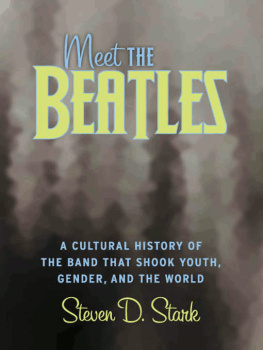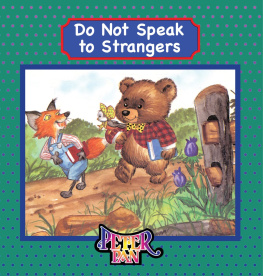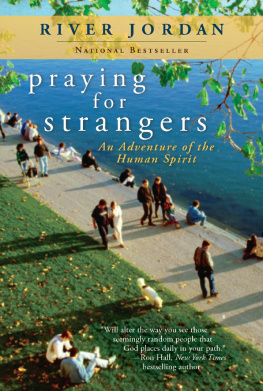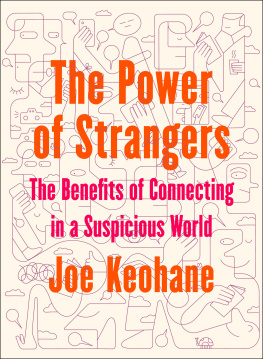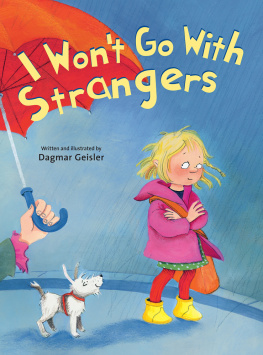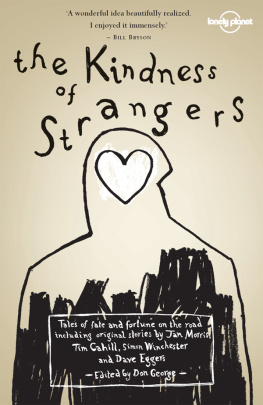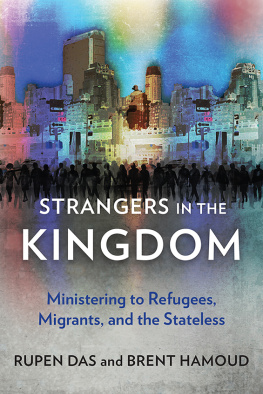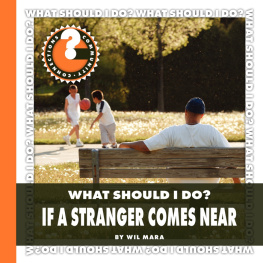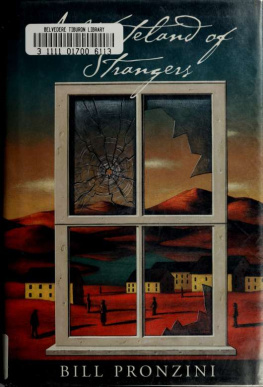Thank you for downloading this Ted Books eBook.
Join our mailing list and get updates on new releases, deals, bonus content and other great books from Ted Books and Simon & Schuster.
C LICK H ERE T O S IGN U P
or visit us online to sign up at
eBookNews.SimonandSchuster.com

Simon & Schuster, Inc.
1230 Avenue of the Americas
New York, NY 10020
www.SimonandSchuster.com
Copyright 2016 by Kio Stark
All rights reserved, including the right to reproduce this book or portions thereof in any form whatsoever. For information address Simon & Schuster Subsidiary Rights Department, 1230 Avenue of the Americas, New York, NY 10020
TED, the TED logo, and TED Books are trademarks of TED Conferences, LLC.
First TED Books hardcover edition September 2016
TED BOOKS and colophon are registered trademarks of TED Conferences, LLC
SIMON & SCHUSTER and colophon are registered trademarks of Simon & Schuster, Inc.
For information about special discounts for bulk purchases, please contact Simon & Schuster Special Sales at 1-866-506-1949 or
For information on licensing the TED Talk that accompanies this book, or other content partnerships with TED, please contact TEDBooks@TED.com.
Interior design by: MGMT. design
Jacket design by: MGMT. design
Illustrated by Julia Rothman
Library of Congress Cataloging-in-Publication Data is available.
ISBN 978-1-5011-1998-9
ISBN 978-1-5011-1999-6 (ebook)
For my mother
CONTENTS
INTRODUCTION
The butchers counter is so high that to catch the eye of the man who makes the sandwiches I have to stand on tiptoe. I order, he nods. When I step back I hear a voice from above me. How are you? the butcher asks me from his restocking ladder. Not bad, I say. Im going to be a lot better when I eat that sandwich. He laughs, and turns back to the cans on the shelf.
And how about you?
He turns back around. Me? You came in, my day is made. He bows and smiles. He means it as a compliment and I decide to take it that way. You have the day off? Im not dressed for an office. I can see why he asked.
Well, Im a writer, so Im going to sit at my computer. I make a typing motion. He asks what Im working on.
Its a book about talking to strangers.
You dont say! Thats neat. He steps down off the ladder. You know, I do that all the time. I mean here, sure, thats my job. But everywhere else too. Hes spreading his hands in the air, the whole city, hes showing me. You know, in an elevator or something, not all the time, its not always right. But just hello or good morning. The other day Im in an elevator and I say to the woman next to me, I look at her and say just Good morning and then I look back at the doors. I dont want her to think I want anything from her, thats not what it is. So she turns to me, says, And good morning to you. Then she says, You know, thank you. Now I feel like a human. I just try to do it. I mean, I wish everybody knew. People dont have to live like that, like were not all right here together.
Talking to people Ive never met is my adventure. Its my joy, my rebellion, my liberation. It is how I live.
Heres why. When you talk with strangers, you make beautiful and surprising interruptions in the expected narrative of your daily life. You shift perspective. You form momentary, meaningful connections. You find questions whose answers you thought you knew. You reject the ideas that make us so suspicious of each other.
Ive been thinking about this for a long time. Its not just that my own interactions with strangers resonate with meaning for me. Im also fascinated with the lives of others, with how people the world over talk to strangers, why they do and why they dont. In the past decade, my fascination has also extended into the networked world, full of new technologies that have the potential to generate new forms of connectedness. Many of the ideas youll encounter here took shape in a university course I created at NYUs Interactive Telecommunications Program, where I taught technologists and programmers and app designers to understand how the strangers they seek to bring together actually behave, and why people do what they do in the face of people they dont know.
In these pages well explore why talking to strangers is good for you. Well investigate how its possible for people to open themselves to even the briefest conversations with strangers and the fascinating dynamics of how they do it. What does it take to say a simple hello to a stranger you pass on the street? How might that interaction continue? What are the places in which you are more likely to interact with people you dont know? How do you get out of a conversation? These sound like easy questions. As youll see, they are not.
Now, the ground rules.
It should go without saying, but this is a book about noticing things that go without saying, so, just in case:
When I talk about talking to strangers, I am talking about open, respectful, genuine interaction. None of what youll read here is to sanction or suggest that unwanted, hostile contactstreet harassment, in other wordscontributes to our sense of belonging and humanity. Talking at strangers is a form of violence: catcalls, name-calling, objectifying comments about the bodies of others, mockery, threats veiled by diction and threats made by sheer tone. And not only in the immediate momentwhen people regularly come up against these behaviors it trains them not to talk to strangers. As a citizen of the street you have two responsibilities. The first is to be kind and respectful. The second is to loudly protest when you see verbally or physically aggressive street behavior as long as you dont think speaking up will make things worse. Protect the ability of everyone to have positive interactions in public with people they dont know by calling out the troublemakers, the haters, the harassers. Dont do it and dont tolerate it.
This is a book about talking, and its also a book about seeing, listening, and being alert to the world. I want to show you how lyrical and profound our most momentary connections can be, to broaden your understanding and deepen your perception of people who are strangers to you. I want you to see the invisible mechanics and meanings of street interactions. I want to give you a new way to be in love with the world.
Who Is a Stranger?
How do you divide the world into known and unknown? Stranger is a slippery wordyou think you know what it means until you try to account for yourself. It names an idea that invisibly structures your everyday life, what you see, the choices you make, the way you move. Are you ready to see just how slippery it is? Tell me what you mean when you say stranger .
I ask this a lot, and almost everything I hear boils down to this wonderfully contradictory list.
Someone youve only seen once.
The entire world of people youve never met or encountered.
All the people who are unknown to you but possibly knowable, the people who youre aware of as individuals in some way, but have never met or encountered in person.
People you have personal information about but have not met, like a friend of a friend, or a public person.
A person who doesnt share your context, whether that is ideological or geographical.
Next page


